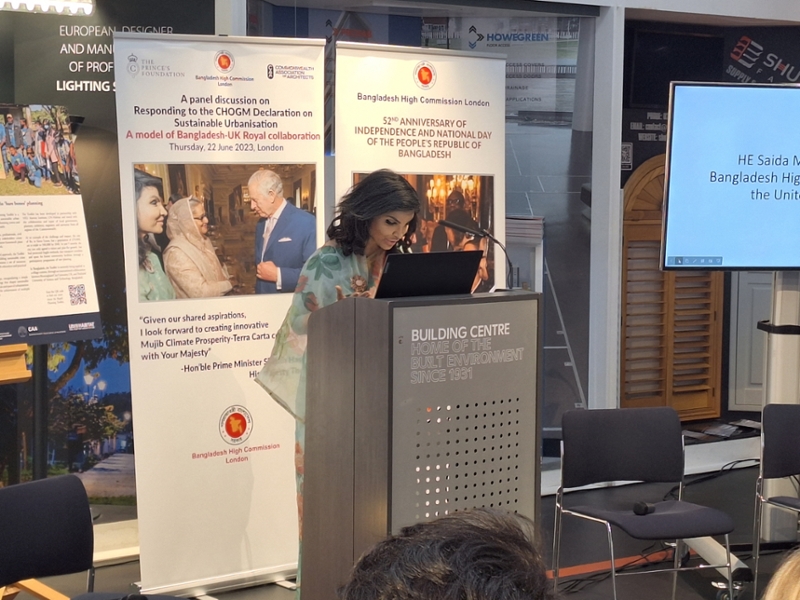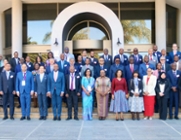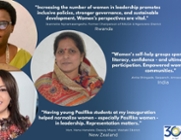Tackling rapid urbanisation with new tools and collaboration

28 June 2023
At an event hosted by The Prince’s Foundation, the Bangladesh High Commission in London, and the Commonwealth Association of Architects at the Building Centre in London, guests were able to see an exhibition about the project and to enjoy a panel discussion on Responding to the CHOGM Declaration on Sustainable Urbanisation: a model of UK-Bangladesh collaboration.
It follows on from the 2021 launch of the Rapid Planning Toolkit, developed by the Prince’s Foundation, in partnership with the Commonwealth Local Government Forum, Commonwealth Association of Planners, Commonwealth Association of Architects and Association of Commonwealth Universities. This is a 4-step guide, which aims to assist city leaders in addressing rapid population growth and climate change, by creating robust and implementable walkable neighbourhood plans.
Triple threat
The keynote address was provided by H E Saida Muna Tasneem, High Commissioner of Bangladesh to the UK. Before she spoke Ben Bolgar of the Prince’s Foundation reminded guests that the world is facing a triple threat of rapid urbanisation, depletion of natural resources and climate change. With an anticipated trebling of the world’s population by 2050, the rapidity of growth has to be a major consideration in the development and growth of cities and current practices can be slow and bureaucratic, particularly in secondary cities which often lack capacity and yet are growing at a much faster rate. He explained that one objective of the Toolkit is to help cities to take key steps quickly.
Accurate Neighbourhood Plans
He explained that steps 1 to 3 of the toolkit were trialled in Sierra Leone’s second city, mapping and walking neighbourhoods with the community and using tree planting to define key corridors for future development. 700 trees were planted as part of this process.
The Toolkit has been developed as a direct result of the collaboration of several Commonwealth organisations, of which CLGF was one, to raise awareness of rapid urbanisation and the need for all development to be sustainable. This resulted in a Call to Action for sustainable urbanisation being launched and then presented to CHOGM, and adopted.
The High Commissioner talked about the situation regarding the triple threat in her country. Bangladesh has a lot of low-lying land, prone to floodingwith an estimated 30 million at risk of being affected by the effects of climate change. She shared some of the Government’s initiatives to support sustainable development in the country. She congratulated the partners involved in the project and welcomed on-going collaboration.
A panel session concluded the session, bringing together representatives from the universities in both countries - students and academics - discussing the value of their cooperation, their experience of using the toolkit, and welcoming further collaborative projects. The community in Kazirgaon village are now looking to unlock funding for implementation – including tree planting, the health centre, improved infrastructure and drainage – demonstrating a planned and genuinely sustainable approach to future growth.
Back to News





